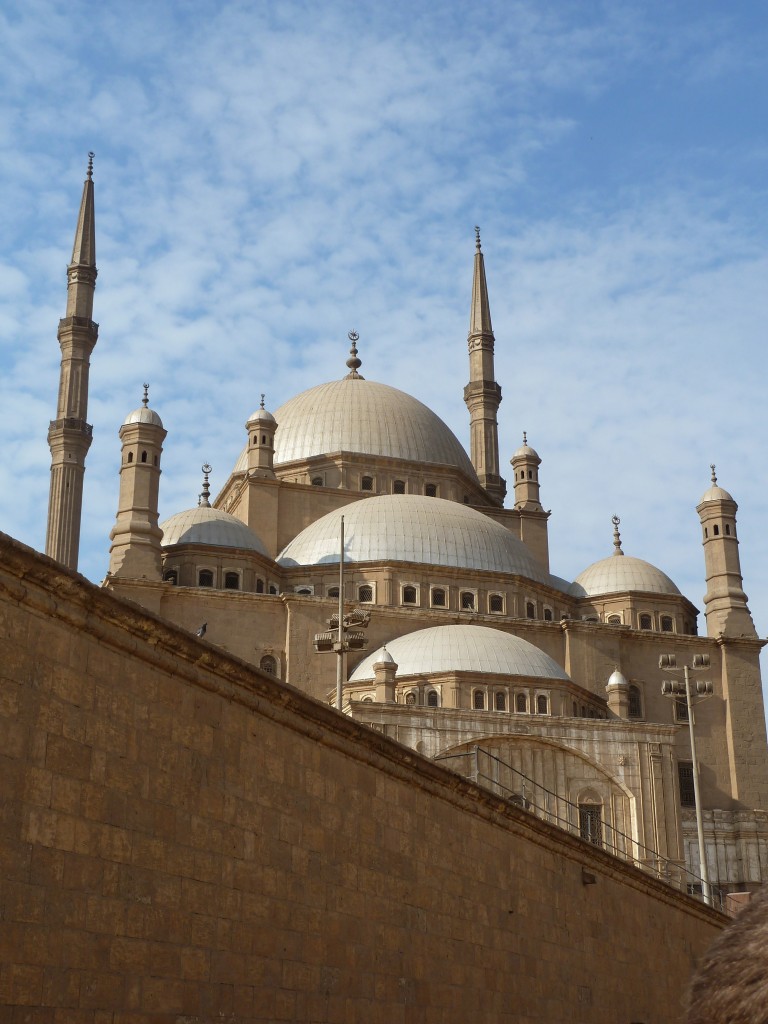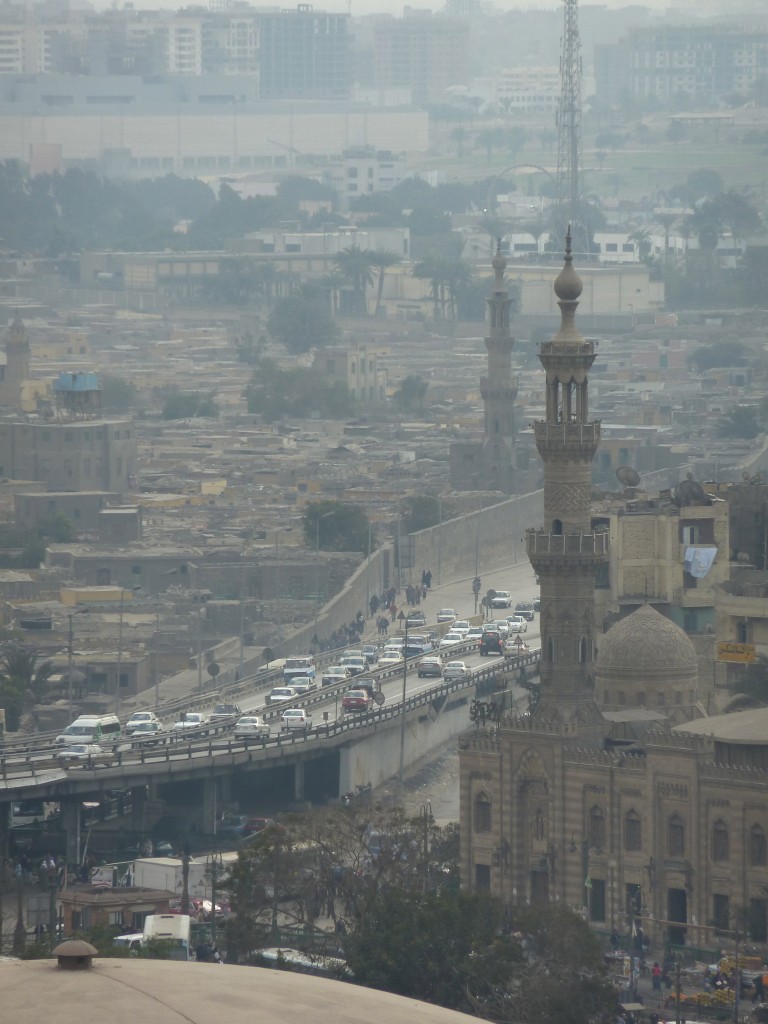Mummies, warriors and hustlers

We’re sitting on a train speeding south from Cairo to Aswan. It’s the first time we’ve had all day to sit, calmly, without looking at something or fending off people trying to sell us something.
First stop this morning was the Egyptian Museum in Cairo. It has 160,000 separate artefacts on display, plus another 45,000 in storage. The museum itself was built by a French archaeologist in around 1900, when he realised it was time to display the mammoth number of artefacts that were pouring out of the tombs being discovered. If you’ve been to the British Museum, or read anything about Tutankhamen, you probably think the British did a lot of the early archaeology here. But the more I read, the more I realise how much of it came from the French – particularly the many scientists who came with Napoleon when he tried to conquer Egypt early in the 1800s.
There were many scientists, dilettantes, and even grave-robbers who followed in their wake. As our guide told us pointedly a few times, there are a lot of fabulous Egyptian artefacts stored around the world, but the Egyptian museum still (rightly) has the best collection of all.
We saw the Tutankhamen collection (which seemed to be most of his possessions), which was the part we had all been looking forward to, but the highlights, for me at least, were the more everyday egyptian sculptures. It certainly gives you a frisson to realise that the lifelike statue of a scribe you are looking at is around 3,000 years old, but it still seems as if he is returning your gaze, waiting to take your dictation.

For a contrasting look at later Egyptian power, we visited the Citadel of Saladin, who first rose to power in Egypt, when he took control of Cairo, and then Egypt, before going on to defeat the Crusaders in what is now Israel. It is an impressive mediaeval fortress, with a secret canal (on top of an otherwise pointless looking wall) to the Nile River, so that they could get water even in case of a siege. Sadly, by then, Egypt was part of the Ottoman empire, having lost its proud independent existence a millenium and a half before, when it was conquered by Alexander the Great.
And finally, a look at modern Egypt. As I read in one guidebook before we came, Egyptians have been practising the art of taking money from tourists for 5,o00 years, so they’re quite good at it. At the main (tourist) bazaar, they seem to have descended mostly to tourist tat as their money extraction device, which didn’t work for any of us. The cafes, though, were more expensive than even in our five star hotel – maybe they do know what they’re doing after all.
It is quite amazing to see a place where the history has been continuous for such a long, long time. The scruffy looking apartments in the centre of modern Cairo are probably on top of a continuous series of brick, then mud brick, then even older dwellings – all getting their sustenance from the Nile, and the ingenuity of their occupants.
Hey there! The trip to Egypt sounds amazing so far.
I have a practical question. We’re finally settled into a flat in Scotland, and the kids are going to school, so those are two items checked off our “have a successful sabbatical” list. But now it’s our first real settled weekend, and of course it’s rainy and cold, and the kids don’t really want to go anyplace. We’ve decided we’re going to make them go places one day each weekend (and be generous with counting parks as the places, so long as they’re in other towns and involve train rides), but I’m wondering — how do you keep your kids’ interest in exploration high? Or have we just picked a poor (pre-teen) moment to take our kids overseas?
Well your kids are a little older than ours, so ours may be more pliable. It doesn’t always work (this blog tends to accentuate the positive!), but a perfect trip will probably include a few things. One of us will have done some research about where we are going, and tried to make a story about it – found an interesting character, or invention that we can talk about. There is generally a visit to a cafe at the end of the visit to look forward to, which depends to some extent on good behaviour. And ideally at least one of the kids is really interested in something associated with where we are going (Declan favours animals and art, Callum science, and they are both interested in different aspects of history). And if it’s a really rubbish place, we’re willing to cut the visit short, if we all agree there isn’t much to see.
For this Egypt visit, because we did a tour, we got really lucky and got a guide who was passionate about his subject, enough to make it interesting to all of us, kids and adults.
Pre research definitely makes it better. It’s harder work for us, but generally very interesting work, because we’re finding we get much more understanding of the places while trying to explain them to the boys than we did 20 years ago when we were just doing it for ourselves.
Good luck. Let me know exactly where you are, if you like – Evan grew up near Glasgow, and might have some ideas.